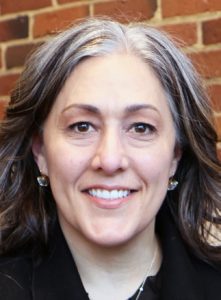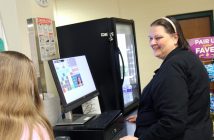PLATTSBURGH — “Reverse Robin Hood” is a term used by former U.S. Labor Secretary Robert Reich to describe the current efforts to enact a federal budget that over the next decade that will give $4.5 trillion in tax cuts to the wealthiest Americans while cutting safety net programs.
For the math to work, the House of Representatives and Senate must find ways to reduce spending, which is how Medicaid landed in the crosshairs with cuts projected at $880 billion over 10 years.
Medicaid is a joint federal and state program that covers health insurance for people with disabilities, low income, elderly and anyone needing long-term care. Medicaid covers 73 million people, about one in four Americans, half of them children. Mental health and nursing home services gaps also fall under the Medicaid umbrella.
The federal Supplemental Nutrition Assistance Program (SNAP), which helps low and no-income individuals purchase food, is also on the chopping block.
More than 41 million Americans used SNAP last year to stretch their food budget.
In 2024, the average snap benefit was $189 per month or $6.20 per day. Every dollar of SNAP spending generates about $1.50 in economic activity.
Changes under consideration include limiting eligibility, placing funding caps on recipients and cutting Medicaid payments to states, which would devastate public programs that provide health care and nutrition to those who need it the most.
Impact on DSS workers
CSEA members at county Department of Social Services (DSS) offices across the state help administer SNAP benefits.

Gallicchio
CSEA Clinton County Local President Cindy Gallicchio is a coordinator for staff and organizational development at Clinton County Department of Social Services. She spent 21 years in the Medicaid/SNAP Unit and knows what need looks like for folks in her community.
She also knows the work required by DSS employees to administer and oversee Medicaid and SNAP programs.
“In SNAP and Medicaid. we have a lot of cases; we have complicated cases that can take weeks and months to open,” said Gallicchio. “We need to check resources and we are struggling to get workers trained.”
Changes to the benefit formula will impact DSS employees already juggling existing state and federal law.
“There are many complexities, and determination is time-consuming, especially if the goalposts change and DSS staff have to constantly adjust to new requirements on top of it,” said Gallicchio. “So, we need to keep up on changes and how eligibility is determined is likely one of the biggest areas that will make more work and take longer to onboard new people needing services.”
Impact on communities
Gallicchio is also concerned about attempts by legislators to re-define poverty and how local communities will be impacted.
“If we change the definition of poverty, we will be squeezing those who are already squeezed the most,” said Gallicchio. “I worry about the ability of people to take care of themselves and others. People will be forced to make difficult choices, and more people will be thrust into poverty. When safety nets go away, we know that women and children will suffer the most. This will hurt us for generations and perpetuate issues already facing our communities.”
Gallicchio is also concerned about how cuts will harm children who rely on SNAP benefits.
“Right now, we have backpack programs so kids getting free or reduced lunches at school can get nutrition over the weekend, said Gallicchio. “We see communities attempting to step in and bridge the gap over the summer through summer meal programs. So, what will happen if we cut SNAP benefits? Are we going to compromise safety in our community? Are children’s lives on the line?”
“As far as I am concerned, everything is on the line and every corner of our communities will suffer,” said Gallicchio.
Impact to budgets
Gallicchio’s experience in local government and knowledge of federal and state funding gives her unique insight when it comes to the ways budgets get balanced.
“We all have budgets. The feds have a budget, and that budget impacts the state. The state budget and funding formulas impact local governments. We all have our own personal budgets,” said Gallicchio. “The impact to any cuts to states will be difficult. Counties will have to decide where to cut and hard decisions will be made about staffing.”
Gallicchio added that many CSEA members, particularly those who are eligible for benefits or have loved ones who rely on them, will face difficult choices.
“I don’t think the average person has thought about all the things that will be impacted,” said Gallicchio. “Once you think about it, it’s like a snowball effect that moves fast and grabs everything in its path.”
Gallicchio urged members to get active in efforts to stop the cuts.
“As a union, this is about more than jobs. It’s about fighting to keep jobs and to make sure members know what is happening,” said Gallicchio. “What is clear is that the decisions governments will be forced to make will not hurt those at the top; they will hurt at the bottom because they have always hurt at the bottom. No one should feel safe. One way or another, you will hurt, too.”
CSEA Capital Region President Shana Davis urged members to stand in solidarity amid the cuts.
“Party politics can be a dangerous place to land when representing union members, especially as federal workers right here in the Capital Region are being laid off or terminated,” said Davis. “We cannot afford to become complacent or divided by our personal political beliefs. Now more than ever, we must stay focused and remain committed to the work ahead. Standing together is the only way to protect all jobs and every CSEA member.”
— Therese Assalian



